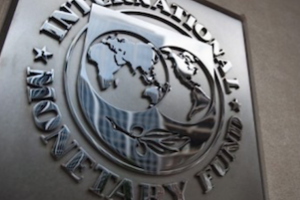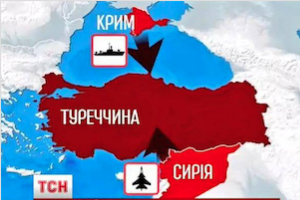How Turkish-Russian Tensions Affect Central Asia and the Caucasus
CACI Forum
Wednesday, March 23, 2016, from 5 to 7 p.m.
(reception at 5 p.m. with Georgian wine, followed by the main program at 5:30)
Russia's seizure of Crimea and Russia's ongoing military campaign in Syria have transformed the strategic landscape from the Eastern Mediterranean and Black Sea region to the Caspian area. Grave tensions between Russia and Turkey were mounting even before Putin and Erdogan launched into a florid and vituperative war of words, which continues unabated.
Our speakers will delve into the many levels of this confrontation, offer important perspectives on how it is affecting security and economic life in the Caucasus and Central Asia, and suggest where it all might lead.
A video recording of this event can be viewed on the SAIS Events channel on Youtube.
Speakers:
Eric Edelman, Roger Hertog Distinguished Practitioner-in-Residence at the Philip Merrill Center for Strategic Studies, SAIS
Avinoam Idan, Nonresident Senior Fellow, Central Asia-Caucasus Institute & Silk Road Studies Program
Vladislav Inozemtsev, Director and Founder, Center for Post-Industrial Studies, Moscow
Olga Oliker, Senior Adviser and Director, Russia and Eurasia Program, CSIS
Kurt Volker, Executive Director, McCain Institute, and former US Ambassador to NATO
Moderator: Svante Cornell, Director, Central Asia-Caucasus Institute
Rome Building Auditorium
SAIS - Johns Hopkins University
1619 Massachusetts Ave., NW
Washington, DC 20036
Click here to RSVP and register
IMF Economic Outlook for Caucasus and Central Asia: Reforms Needed to Weather Shocks from Commodity Prices and Russia

IMF Economic Outlook for Caucasus and Central Asia: Reforms Needed to Weather Shocks from Commodity Prices and Russia
Wednesday, Dec. 2, 2015, from 5 to 7 p.m.
(reception at 5 p.m. with Georgian wine, followed by the main program at 5:30)
This event can be viewed on the SAIS events channel.
SPEAKERS:
Juha Kähkönen
Deputy Director, Middle East and Central Asia Department, IMF
Edward Gemayel
Mission Chief, Kyrgyz Republic, IMF
MODERATOR: S. Frederick Starr, Chairman, Central Asia-Caucasus Institute
Rome Building Auditorium
SAIS - Johns Hopkins University
1619 Massachusetts Ave., NW
Washington, DC 20036
Click here to RSVP and register
Current Dynamics in Eurasia Region: Political and Economic Implications
CACI FORUM
Current Dynamics in Eurasia Region: Political and Economic Implications
Monday, 4 May 2015, from 5 to 7 PM
You may view a recorded version of this CACI Forum below or on the SAIS events YouTube channel.
Recent developments in the Eurasia region demonstrate that regional superpowers stepped into a vigorous race for shaping a geopolitical picture that suits their own political interests and security considerations. Russia has formed a union of allies that helps to destabilize countries that did not pledge their loyalty to Russia: the Eurasia Economic Union, established by Russia, Belarus and Kazakhstan, will extend its borders as far as Armenia and Kyrgyz Republic (pending ratification in May). Thus Russia uses political and military leverage to form a comfort zone in the Caucasus and Central Asia; meanwhile, China uses trade and massive infrastructure projects financing to increase influence in Central Asia and Mongolia. At the same time, the European Union has been cooperating with Ukraine and republics in the Caucasus to sign EU association agreements on free trade within the European Union.
Countries in Central Asia, Caucasus and Mongolia are at the crossroads of choosing their destinies. What will be the future of the region? What will be the role of Eurasian Economic Union? Will China’s role in Central Asia grow?
CACI Rumsfeld fellows will discuss possible scenarios of development in the Eurasia region, with relevant political, social, and economic implications, based on their personal experience in public sector and business.


